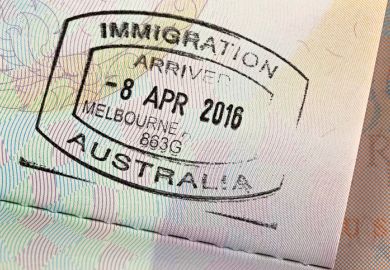Australian academics are at loggerheads over Chinese influence on their campuses, as debate about proposed foreign interference legislation reaches boiling point.
Thirty-five China scholars have penned an open letter denying that the debate is fuelled by racism, and warning of Chinese Communist Party meddling in politics, the media, community groups and universities.
The group lists 10 CCP activities requiring particular vigilance by Australian authorities. They include “interference in academic freedom” and “Chinese government-backed organisations on university campuses used for monitoring Chinese students”.
The letter has been lodged as a submission to a Senate committee inquiring into proposed national security legislation amendments which, among other things, introduce new offences relating to foreign interference with Australia’s political processes.
Critics say that the proposals would criminalise the handling of information deemed likely to harm Australia’s interests. They say that compromise amendments from the government would offer “certain protections” for journalists, but not academics.
Last week, another group of 30 China scholars – including Stephen Fitzgerald, the inaugural ambassador to China after Australia became one of the first Western nations to recognise its communist government in the 1970s – released an open letter and submission condemning the proposals as a “threat to intellectual freedom”.
“The new legislation would criminalise the simple act of receiving information deemed harmful to the national interest, let alone discussing it in public,” says the letter, which has subsequently been endorsed by dozens more Chinese scholars from Australia and the US.
“We strongly reject any claim that the community of Australian experts on China has been intimidated or bought off by pro-People’s Republic of China interests.
“Whether a scholar at an Australian university, or a student from the PRC, Hong Kong, or Taiwan, all should be able to express their point of view without it being dismissed by accusations that they speak on behalf of hostile foreign interests.”
In a sign of the bitterness of the debate, the new letter responds in word-perfect fashion. “Whether a scholar at an Australian university, or a student from the PRC, Hong Kong or Taiwan, all should be able to express their point of view free of fear or censorship, whether from forces foreign or domestic.
“The Australian authorities should be willing and able to take appropriate steps to counter foreign interference and threats to sovereignty. Existing legislative instruments are not sufficient for these purposes.”
The Senate committee is due to report next month. The debate echoes similar developments in the US, where a draft bill seeks to require Confucius Institutes to register as foreign agents.
Register to continue
Why register?
- Registration is free and only takes a moment
- Once registered, you can read 3 articles a month
- Sign up for our newsletter
Subscribe
Or subscribe for unlimited access to:
- Unlimited access to news, views, insights & reviews
- Digital editions
- Digital access to THE’s university and college rankings analysis
Already registered or a current subscriber?








